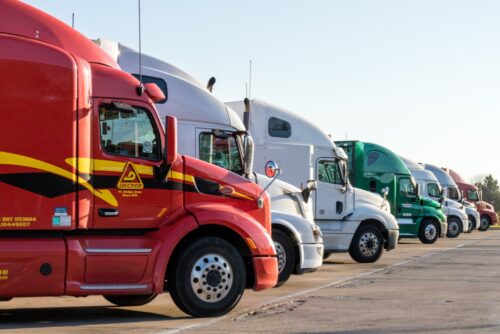
The role and responsibility of a truck driver extend far beyond getting a shipment from Point A to Point B. That is, before they even start their trip, they must load the trailer properly. Actually, the Federal Motor Carrier Safety Administration (FMCSA) orders explicit regulations for how this should be done. That said, please read on to discover the weight requirements for trucks and how a seasoned Tampa truck accident lawyer at Merricks Law Group, P.A. can help you avoid their potential dangers.
Why might an overloaded truck be potentially dangerous?
A trucking company and its truckers cannot overload a tractor-trailer to expedite their operations and maximize their bottom line. Simply put, doing so increases the possibility of a major auto collision. That is, an overloaded truck may be potentially dangerous in the following ways:
- An overloaded truck may hinder a trucker’s ability to brake on time and avoid a rear-end collision.
- An overloaded truck may place too much strain on the tires and prompt a blowout and loss of control.
- An overloaded truck may intensify its uneven weight distribution and make it more susceptible to rolling over.
- An overloaded truck may place too much pressure on mechanical components and increase the risk of failures.
- An overloaded truck may cause damage to roads and bridges and make them more dangerous for other drivers.
What are the weight regulations for trucks driving through Florida?
In tandem with the FMCSA, the Florida Department of Transportation limits the weight of commercial vehicles, like trucks, that make their way through state lines. Specifically, for a tractor-trailer that is at least 43 feet long and has four weight-bearing axles, the maximum gross weight is 80,000 pounds. Then, the weight is supposed to be distributed in a certain way among the axles. For a single axle, the limit is 20,000 pounds, and a tandem axle has 40,000 pounds.
Of note, Florida discloses a 10 percent tolerance. Meaning, a single axle may go up to 22,000 pounds, and a tandem axle to 44,000 pounds. Regardless, though, the gross weight must not exceed 80,000 pounds. In addition, there may be stated exemptions if a truck is used for special operations. For example, the weight limit may be 95,000 pounds if a truck has a self-propelled crane used to tow a motor vehicle that does not weigh more than 5,000 pounds. This may still require the trucking company to obtain a permit first, though.
That said, if you enter a collision with an overloaded truck, this may be enough grounds to pursue legal action. If you still have lingering questions at this point in time, please do not hesitate to reach out to a competent Tampa auto accident lawyer. The team at Merricks Law Group, P.A. will certainly be the perfect fit for you.
